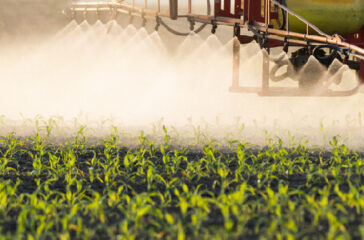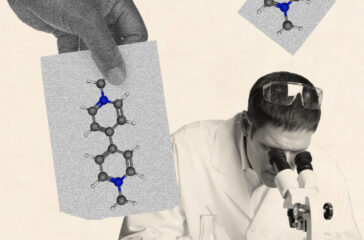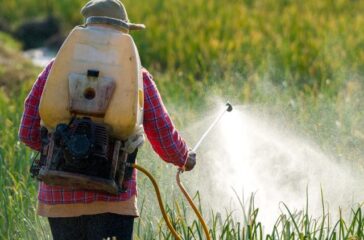EPA takes partial step to ban chlorpyrifos in a move called “unconscionable”
By Carey Gillam
The long and winding regulatory road for a pesticide known to be harmful to developing babies took another turn on Monday as the US Environmental Protection Agency (EPA) said it was planning to only partially ban the insecticide chlorpyrifos in farming.
Under pressure from powerful agricultural industry interests and ordered by a federal court to consider the factors raised by the farming groups in a legal petition, the EPA said it would continue to allow chlorpyrifos to be used by farmers growing 11 crops, including apples, asparagus, citrus, peaches, strawberries, wheat, soybeans and others, despite evidence that the pesticide is associated with “neurodevelopmental effects” that can impair the normal development of children. Other uses in farming would be banned, the agency said.
In the most recent Food and Drug Administration (FDA) pesticide residue monitoring report, chlorpyrifos was the 11th most frequently found pesticide in human food samples out of 209 different pesticides detected by FDA testing.
“EPA continues to prioritize the health of children,” Michal Freedhoff, assistant administrator for the EPA’s Office of Chemical Safety and Pollution Prevention, said in a statement. “This proposed rule is a critical step forward as we work to reduce chlorpyrifos in or on food and to better protect people, including infants and children, from exposure to chemicals that are harmful to human health.”
Public and environmental health advocates saw it differently, saying chlorpyrifos should not be allowed at all, given scientific research showing it has neurotoxic and endocrine disrupting effects, particularly on the developing children of pregnant women.
 EWG
EWG


